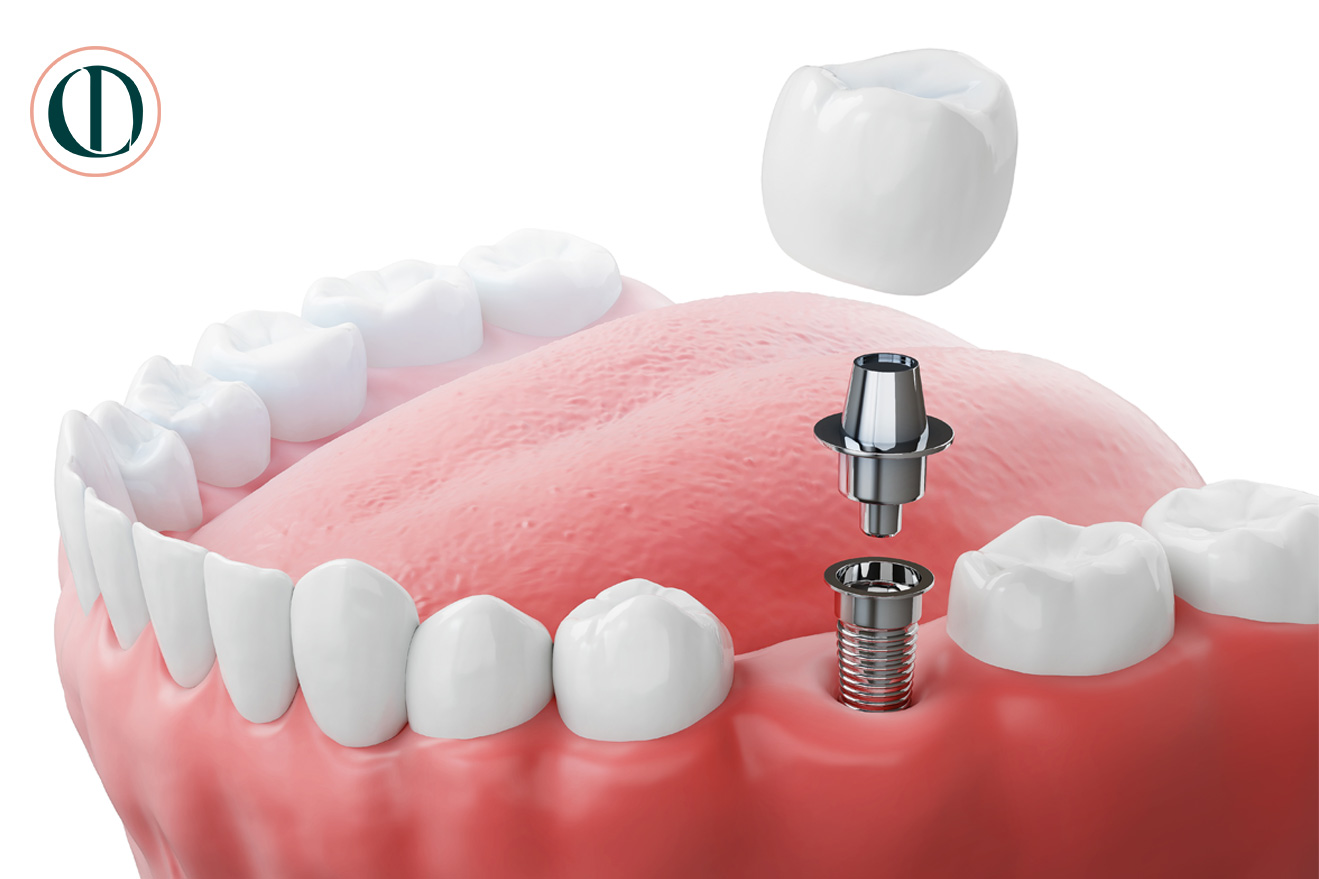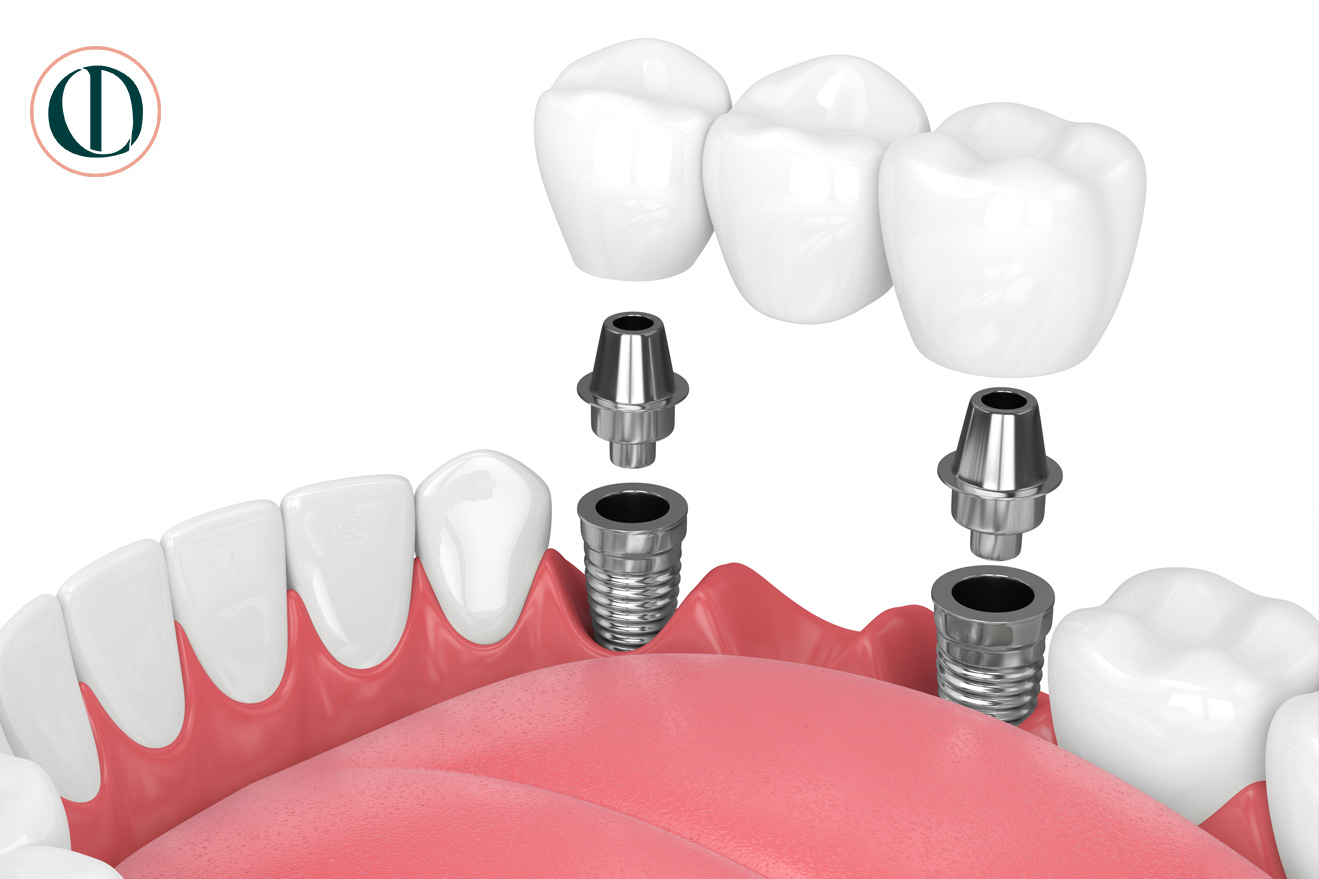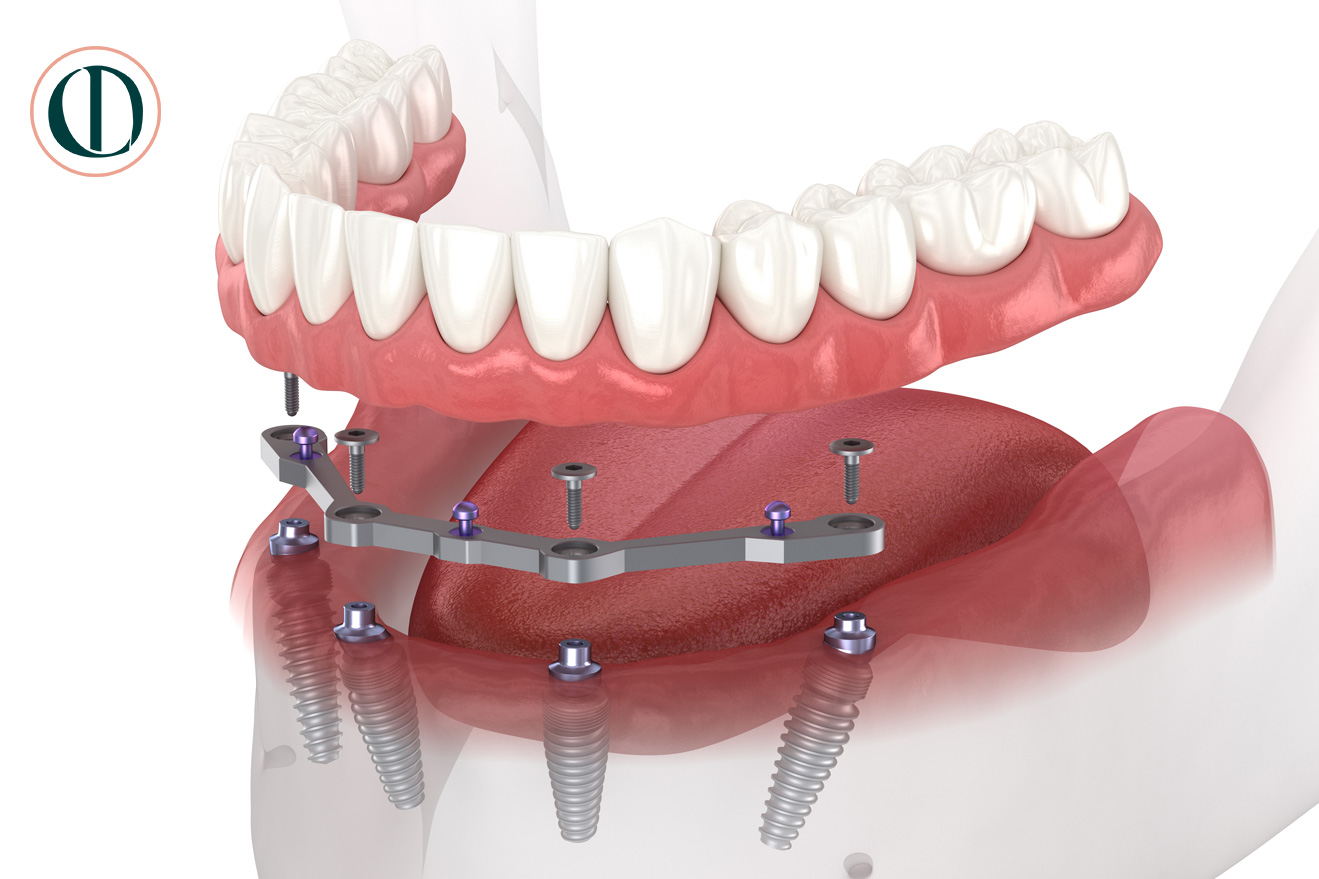Dental Implants
The Permanent Solution to Tooth Loss
Dental Implants
The Permanent Solution to Tooth Loss
One of the most useful, and incredible, advances in modern dentistry is the dental implant treatment.
Simply put, a dental implant is a state-of-the-art titanium replacement for a tooth’s root. This titanium root is placed directly into the jawbone and allowed to fully integrate into your natural bone structure. Once the root is secure, we place a crown on top and the treatment is finished.
Implants not only look, act and feel more like your natural teeth, they are also a permanent and great looking alternative to a bridge or dentures that are strong, long-lasting and surprisingly easy to care for. They can be used to replace a single missing tooth, several or even an entire set.
Single Dental Implant
The permanent solution to a single missing tooth

Multiple Dental Implants
The permanent solution to multiple missing teeth

Implants for Dentures
An alternative solution to removeable dentures

The Process
Understanding the Implant Process
Having an implant put in place requires a relatively minor surgical procedure performed under local anaesthetic or, in some cases, sedation.
The following is a brief description of the implant process:
1
Consultation
Before any work is carried out, you will have an initial consultation to ensure your mouth and jaw are strong and healthy. If we find any issues, it is critical that they are fully addressed before we start the treatment.
2
Integration
During the surgical procedure, we place a state-of-the-art titanium root replacement into your jawbone. Once this titanium rod screw has been placed, we allow the jaw bone to fully and completely heal around it (osseointegration) for a period lasting roughly 3 months. During this time of integration, you’ll normally wear a denture to fill the gap.
3
The Final Touch
Once the screw is fully integrated the implant is fitted with a single crown, bridge or removable denture.
The entire process generally lasts between 3-6 months.
Aftercare for Your New Implant
Looking after dental implants is much easier than it is for traditional dentures and bridges. In fact, it’s about as close to having your natural teeth back as you can get!
Although the implant itself is not subjected to decay and erosion, the area around it is, so it’s important to continue seeing your dentist and hygienist to be sure it’s free from plaque and bacteria.
What to expect after the procedure
For the first few days after the surgical procedure you will need to take particular care to protect the area from any damage or infection while the area heals.
We will ask you to follow common sense instructions such as getting plenty of rest, avoiding hot beverages and hard, chewy or sticky food for a few days, and no smoking or drinking alcohol for at least 24 hours after the procedure.
Your dentist will give you more complete details depending on the type and nature of your implant(s).
FAQs
How do I know if an implant is right for me?
Implants can be an excellent solution for almost anyone over the age of 18 who is in good general health. At Camlough Dental we will do a full assessment to determine if you are a good implant candidate. Because the technology has greatly improved in recent years, even if you have been considered a poor candidate in the past you may find that is no longer the case.
Does it hurt to get an implant?
When we place the titanium screw into your jawbone, we will use a local anaesthetic so you won’t feel any pain. However, it’s common to have some minor discomfort for a few days after. This is usually caused by the stitches and the normal healing process and should go away quickly on its own. You can treat any minor pain with over-the-counter pain relief such as ibuprofen or paracetamol. Do not take more than the recommended dosage.
What do you look for during the assessment?
During your initial consultation your dentist will ask questions about your medical and oral health history. They will then perform a full examination of your mouth and likely take x-rays or scans to find the best position for your new tooth and to make sure the bone is suitable to take the implant.
We will also check for and treat any urgent problems and stabilise any gum or tooth related issues.
Denplan Membership plans
Find out more about our Membership Plans
